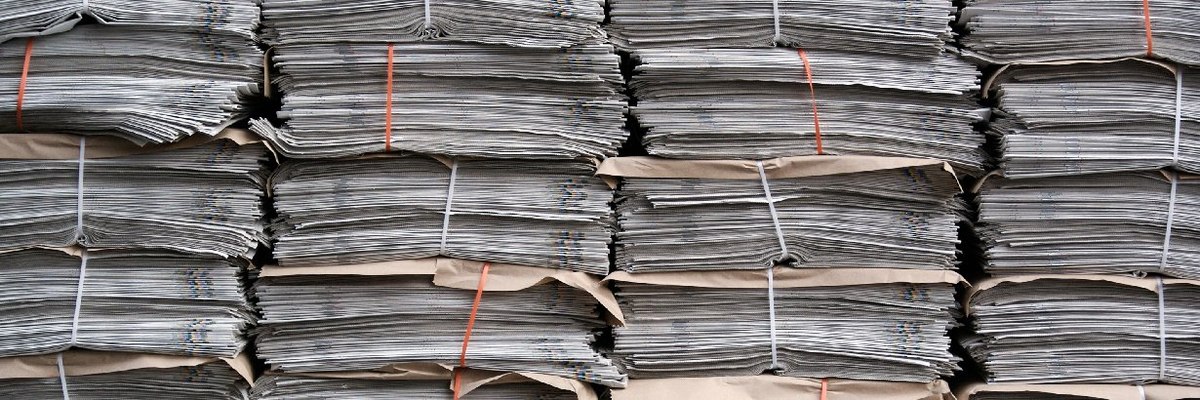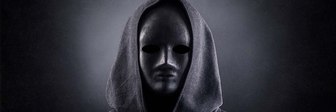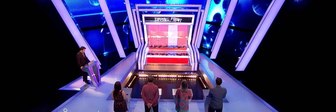By Will Jennings (Professor of Political Science and Public Policy, University of Southampton) and Chris Curtis (YouGov)
It has been widely claimed that public trust in the media has collapsed – and that the coronavirus crisis is contributing to a loss of confidence. But is this true?
Over more than a decade, pollsters YouGov have regularly asked the public whether they trust different groups to ‘tell the truth’ – doctors, judges, teachers, police officers, and estate agents, amongst others. Also included on the list are journalists from television news and newspapers.
In YouGov’s latest poll, conducted on 26th and 27th April, 47% of people expressed trust in BBC News journalists to tell the truth. This number is actually up slightly from when the question was asked during the election campaign in December last year (44%) and just a point below where it stood in March before the government announced a shutdown in response to the coronavirus outbreak (48%). Trust in journalists for ITV and ‘upmarket’ newspapers has similarly been stable over the past six months.
There simply has been no collapse in public trust in news media during the coronavirus outbreak.
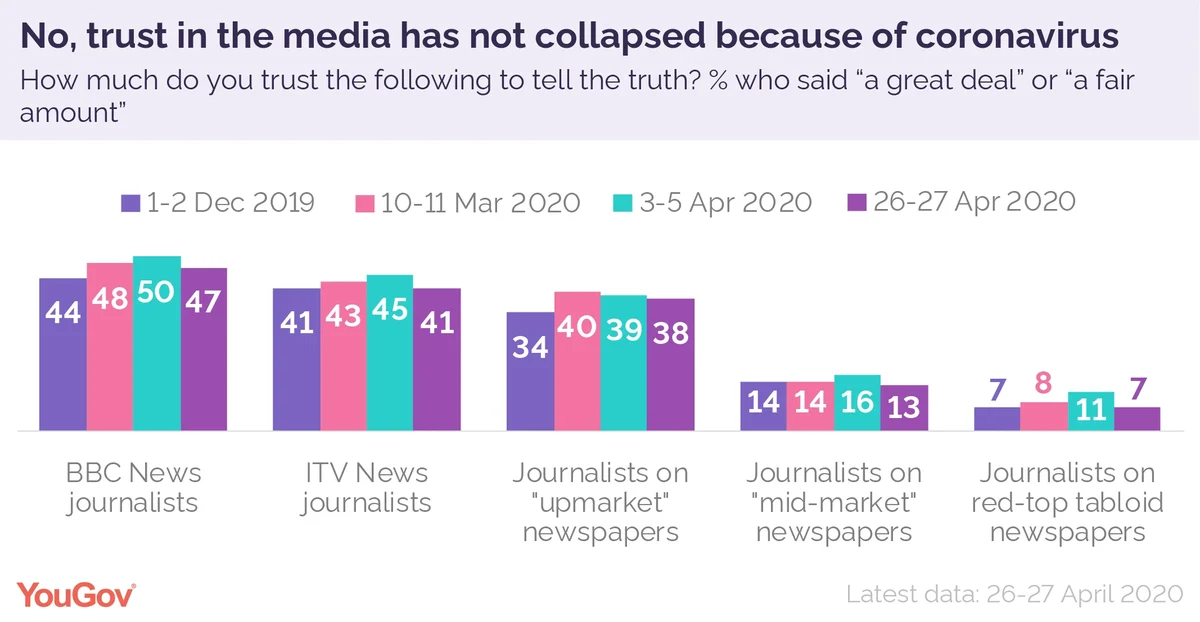
Why has trust in media become a focus of attention?
This isn’t to say that the recent polling on trust hasn’t provided some interesting insights. For example, a recent YouGov poll for Sky News revealed much higher levels of public trust on coronavirus for the PM and Health Secretary compared to TV journalists and newspapers. Of course, trust in the NHS far outstripped everyone else as usual.
But rather than being because of a drop in trust in journalists, this is mainly caused by a rise in support for leading political figures. In the YouGov trust tracker, politicians and government usually fare badly.
But at times of crisis, citizens look to political authorities for leadership and security. Indeed, there has been a surge in approval of many political leaders around the world – in what political scientists call a ‘rally-round-the-flag’ effect. Stricken by the virus, Boris Johnson has seen his ratings climb to new highs. The Conservatives are regularly polling above 50% in voting intention polls, while the government has seen a rise in approval of its handling of the crisis – although those ratings have started to fall in recent weeks.
Public trust in news journalists on coronavirus reflects trust how people see them more widely. In their latest poll, YouGov asked respondents about how much they trusted journalists on coronavirus specifically and in general – finding little difference between the two. The public don’t much trust journalists from the tabloids or ‘mid-market’ newspapers. They are much more trusting of journalists from upmarket papers and television news.
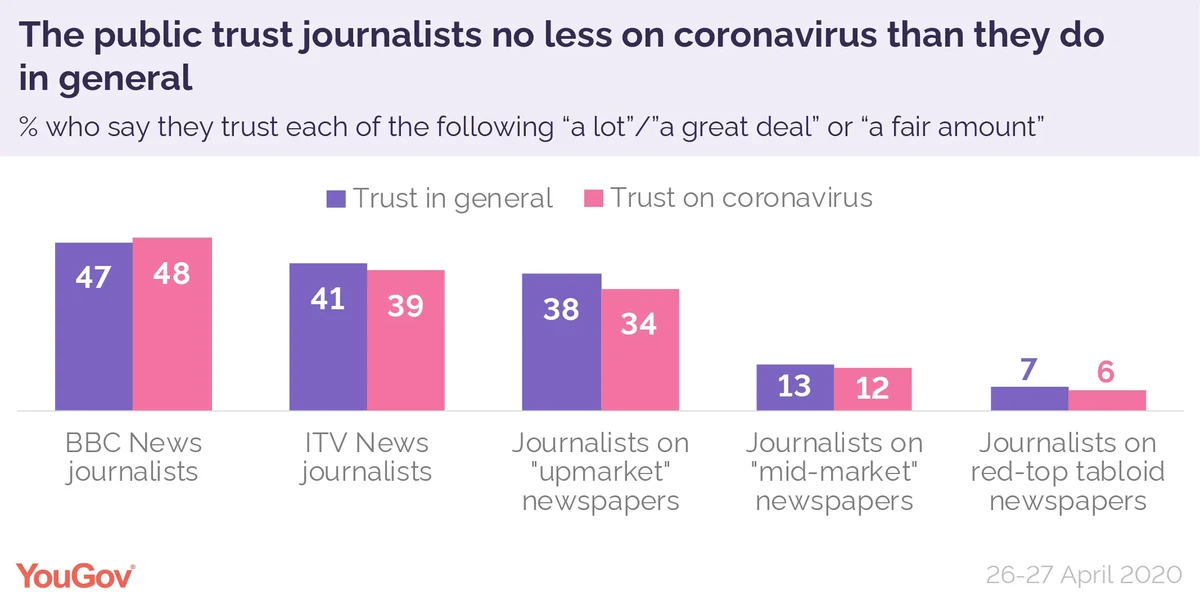
One notable feature of recent polling is emergence of a partisan divide that has sharpened during the coronavirus crisis. Towards the end of the 2019 election campaign, trust in journalists for television news and upmarket newspapers was pretty much the same regardless of whether people supported the Conservatives or Labour. Since, Labour voters have become more trusting of media, while the latest YouGov poll reveals that trust has fallen among Conservative voters over the past week. While this partisan gap is quite typical for trust in BBC journalists (who since 2010 have usually been viewed more positively by Labour supporters), it has been turned on its head for broadsheets. Traditionally Conservative voters have tended to be more trusting of upmarket newspapers, but this is no longer the case – with 46% of Labour voters saying they trust journalists from these papers, but just 29% of Conservative voters saying so (a nine-point swing on the partisan balance of opinion from December).
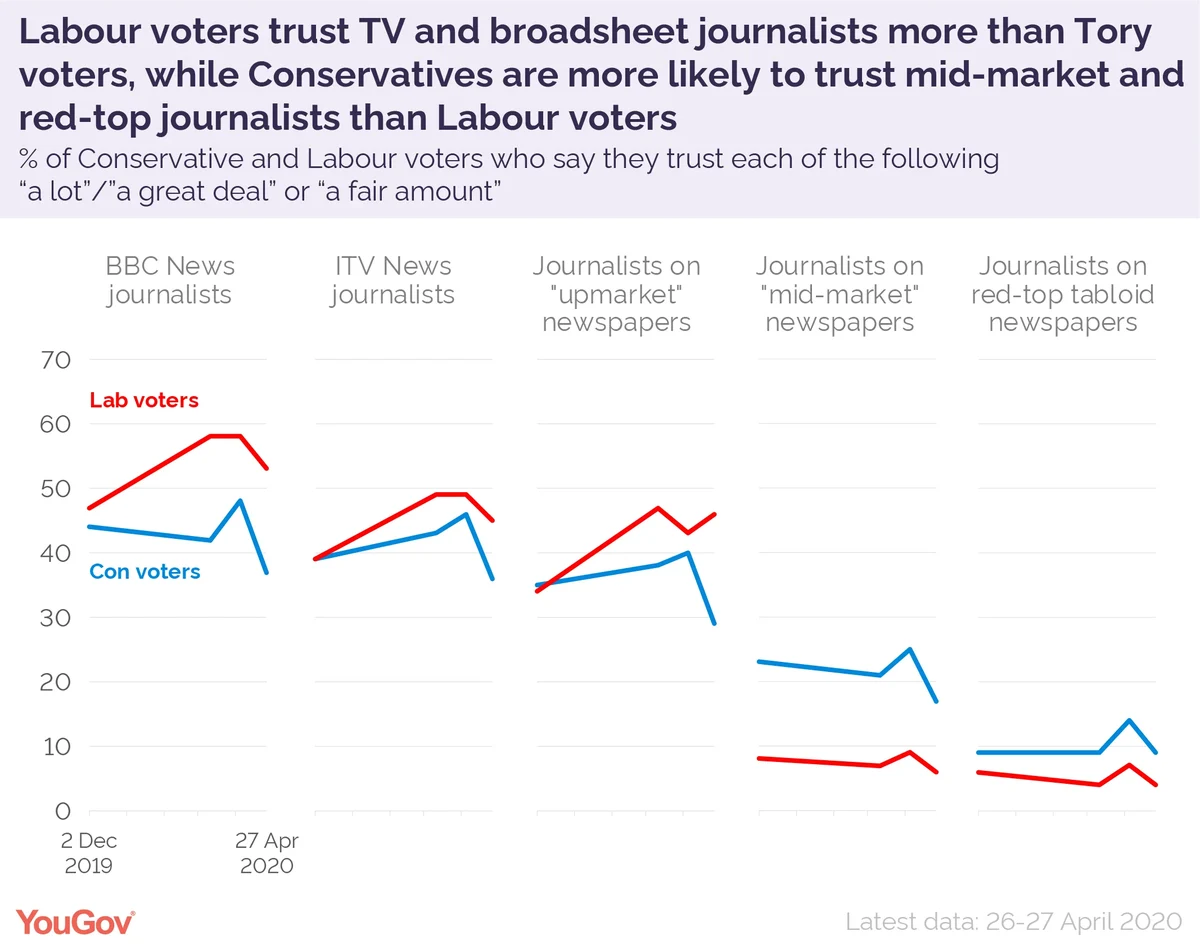
Whether these partisan divides remain after the crisis is over, or fade away, remains to be seen.
But there is no evidence to suggest that trust in media has collapsed or that its coverage of coronavirus has significantly altered peoples’ attitudes towards it.
See the full data on trust in general and trust on coronavirus
